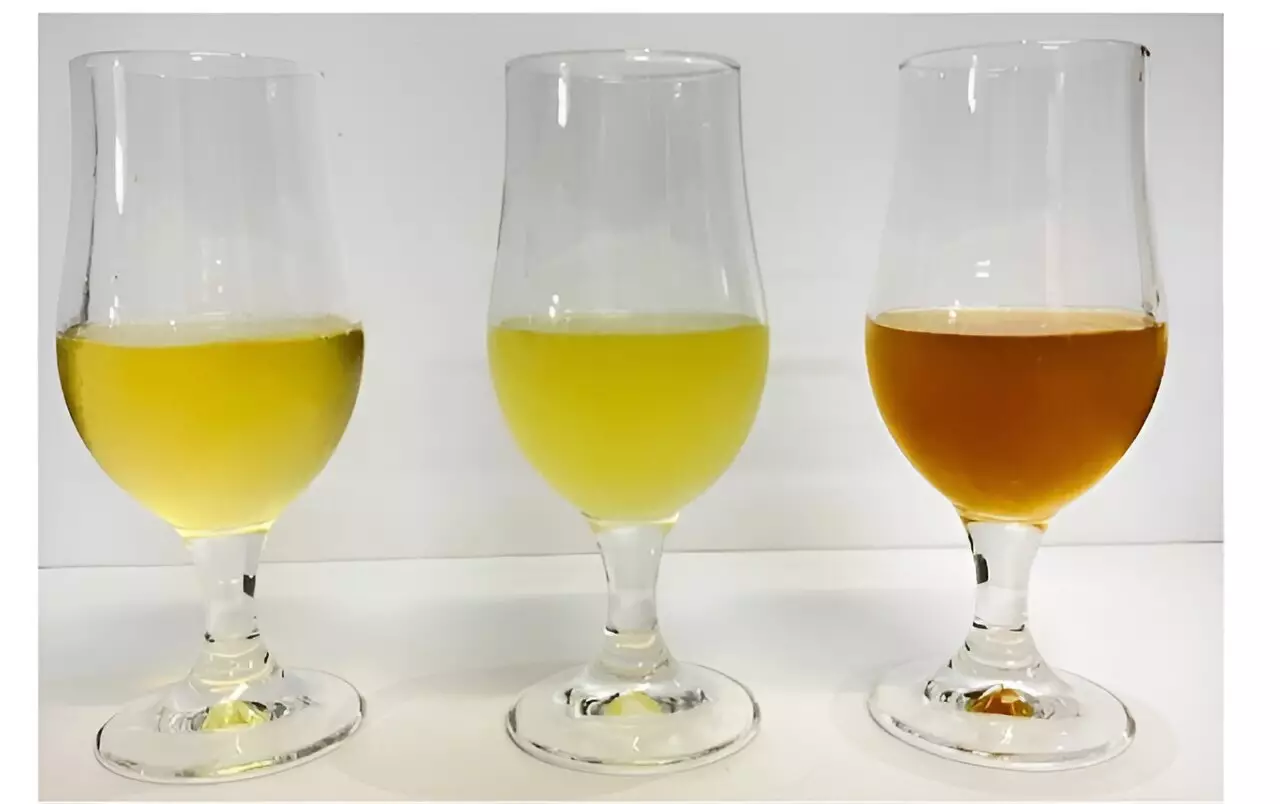Kombucha has established itself as a popular health drink, recognized for its fizzy taste and probiotic benefits derived from the fermentation of tea. However, recent advancements in fermentation techniques have opened the door to experimenting with other plant-based liquids, ushering in an exciting era where traditional kombucha could have viable alternatives.
In the quest for new flavors and health benefits, researchers have turned their attention to fermenting alternative juices beyond the traditional tea. A recent study published in the ACS Agricultural Science & Technology journal assessed the biochemical properties and overall flavor profiles of kombucha alongside beverages derived from apple and passion fruit juices. This research reveals the underlying potential of these alternatives, particularly the apple beverage, which exhibits significant promise owing to its high content of bioactive compounds known as flavonoids.
Understanding the Fermentation Process
The process of making kombucha traditionally involves fermenting sweetened tea with a SCOBY (symbiotic culture of bacteria and yeast). This culture is responsible not only for the effervescent quality of the drink but also introduces beneficial bacteria and a variety of bioactive compounds from the tea itself, including flavonoids, phenolics, and anthocyanins. These compounds have garnered attention due to their potential antioxidant and anti-inflammatory properties. However, the possibility of harnessing similar properties from fermented fruit juices remains largely unexplored.
In the study led by Socorro Vanesca, Frota Gaban, and their team, apple and passion fruit juices were fermented alongside traditional tea over a span of 10 days. Upon completion, the researchers measured the levels of various bioactive compounds across the different beverages. Remarkably, the apple juice emerged as the leader in flavonoid content, suggesting that it may serve as a superior alternative to traditional kombucha. Furthermore, while kombucha and the apple beverage displayed comparable levels of phenolic compounds, both surpassed the passion fruit drink in this aspect. Interestingly, all three beverages exhibited similar levels of anthocyanins, which are known for their red antioxidant coloration.
Flavors are vital in beverage selection, and the study included taste tests with a group of 12 volunteers who assessed the color, aroma, and overall flavor of each drink. Results indicated that apple juice not only presented a pleasing amber hue but also offered a strong, fruity aroma that appealed to testers. On the other hand, the passion fruit drink was noted for its bitterness, which may have hindered its acceptance compared to the sweeter profiles of apple and tea. Ultimately, both apple and tea beverages received equal acclaim as favorites in the tasting event.
Given the promising results of fermented apple juice, researchers advocate for further exploration into various fermented fruit beverages that could enrich our diets with antioxidants and introduce new flavor dimensions. While kombucha holds a firm place in the health-conscious consumer market, the findings suggest that alternatives like apple and passion fruit could provide equally appealing, healthful options that broaden the scope of fermented drinks. As exploration in this domain evolves, consumers could witness a surge in exciting, antioxidant-rich beverages that rival traditional kombucha.


Leave a Reply